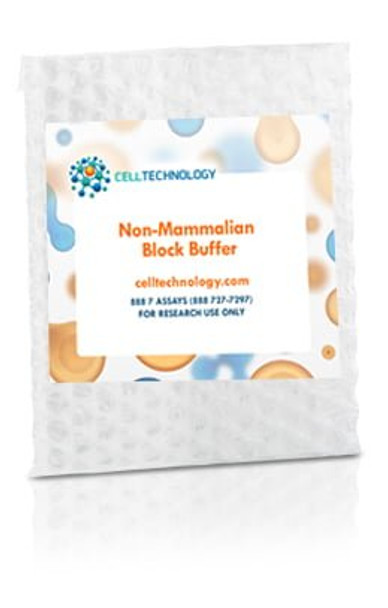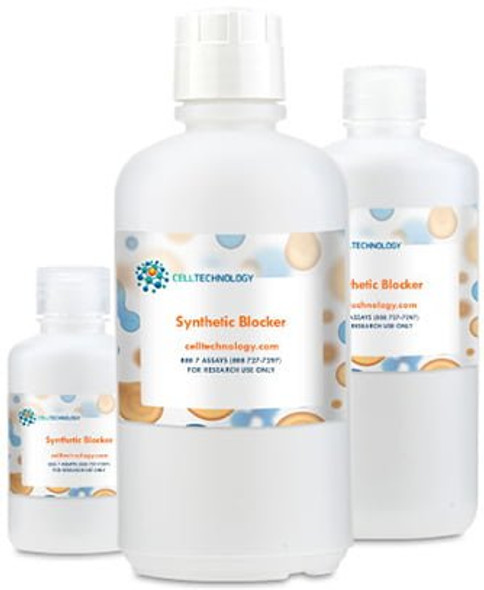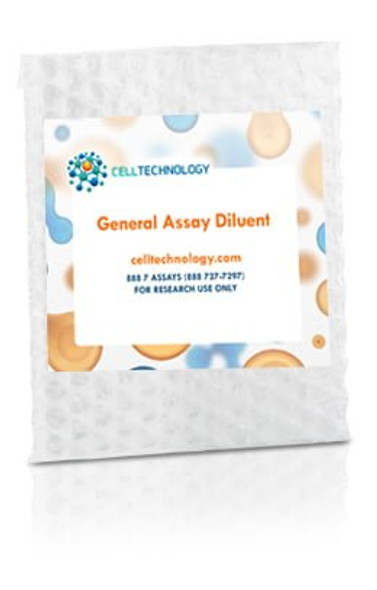Description
Nonmammalian-Based Blockers | EBB200-1/EBB200-2/EBB200-3/EBB200-4 | Cell Technology
Additional information
Bottle Size: 100 mL, 500 mL, 1 L, 10 L
Improves Assays
- Increases the Sensitivity of the Assay. This is done by stabilizing the antigenic and functional regions of the absorbed protein.
- Reduces Background Noise. Block buffers inhibit nonspecific binding to uncoated regions of the plate and non-specific binding sections of the absorbed proteins. This leads to lower background noise and high specific signal.
- Increases Efficiency and Extends the Shelf-Life of the Coated Plates. With a longer shelf-life, plates may be prepared in large batches to be used over time. Large batch sizes will increase efficiency and reduce plate-to-plate variability to increase consistency.
- Conserves Valuable Reagents. By promoting a higher specific signal, less protein may be needed to coat the plate and less of the detection molecules may be needed to generate a signal when the proper blocker is used.
Directions
Once your plate has been coated with an antibody or antigen, aspirate or dump out the coating solution. Then, simply pipette 300-400uL per well of block buffer and let it incubate (Cell Technology recommends a minimum incubation of 3 hours).
ECD
Cell Technology’s Nonmammalian-Based Blocker contains a proprietary non-mammalian formulation based on fish proteins, plus molecular stabilizers that provide a high degree of blocking efficiency. EBB200 was designed for antigen-down ELISA formats, and for sandwich assays with high background problems.
This formulation is a heterogeneous mixture of small molecules capable of blocking both the nonspecific binding sites of the absorbed protein, as well as the unoccupied regions of the polystyrene plate that are not sterically accessible to larger traditional mammalian blocking reagents, thereby reducing background noise. The small size of these unique blockers results in minimal steric hindrance to key epitope regions of target coated proteins, thus enhancing specific signal generation.
EBB200 reduces the possibility of false-positives generated from endogenous antibodies in the sample reacting with plate blocking proteins. It is particularly useful when working with human, swine, and bovine serum samples, as there is little interaction with the blocking molecules resulting in lower backgrounds.












